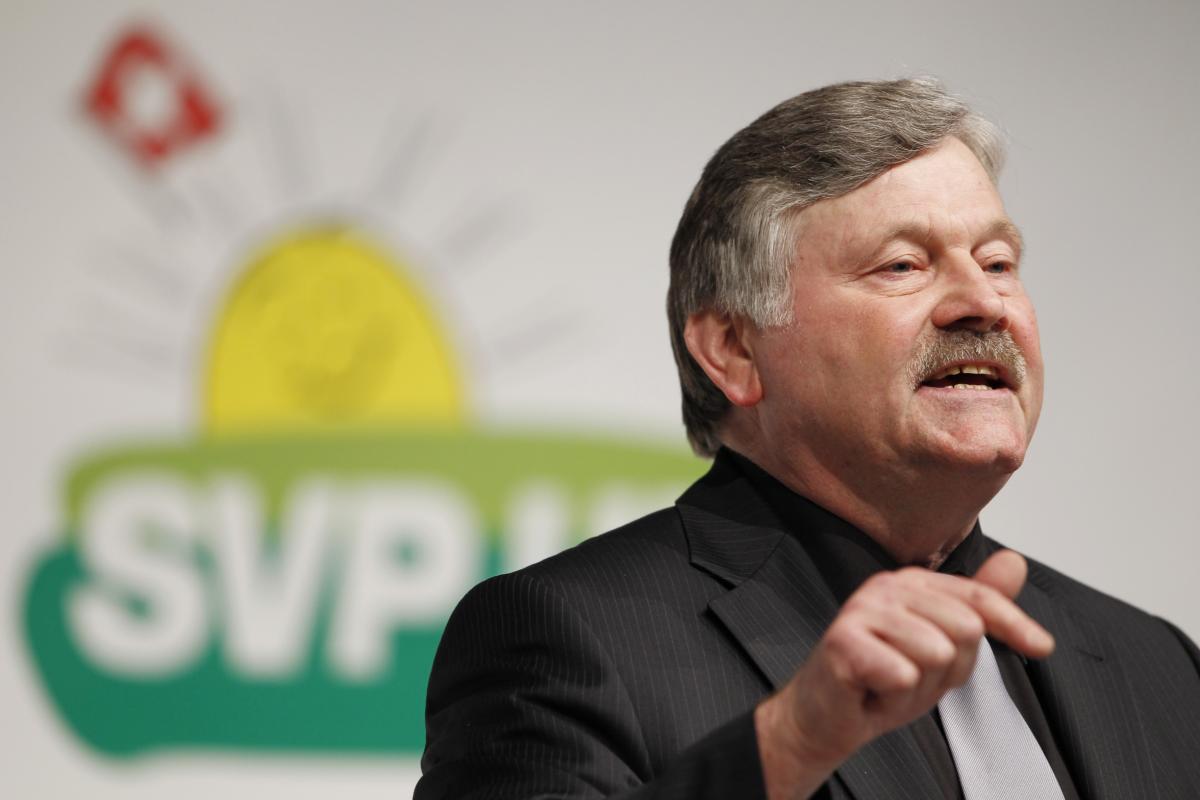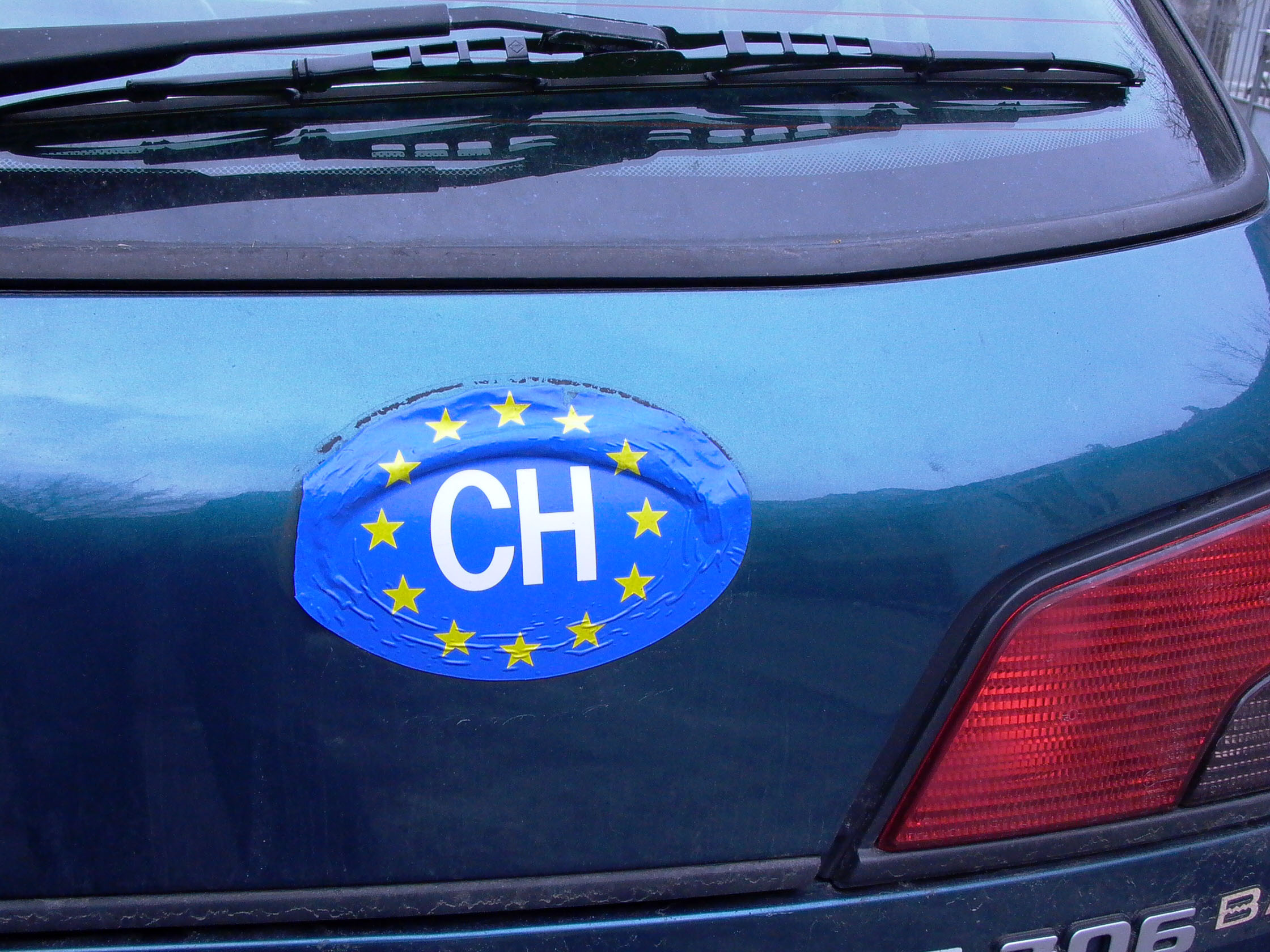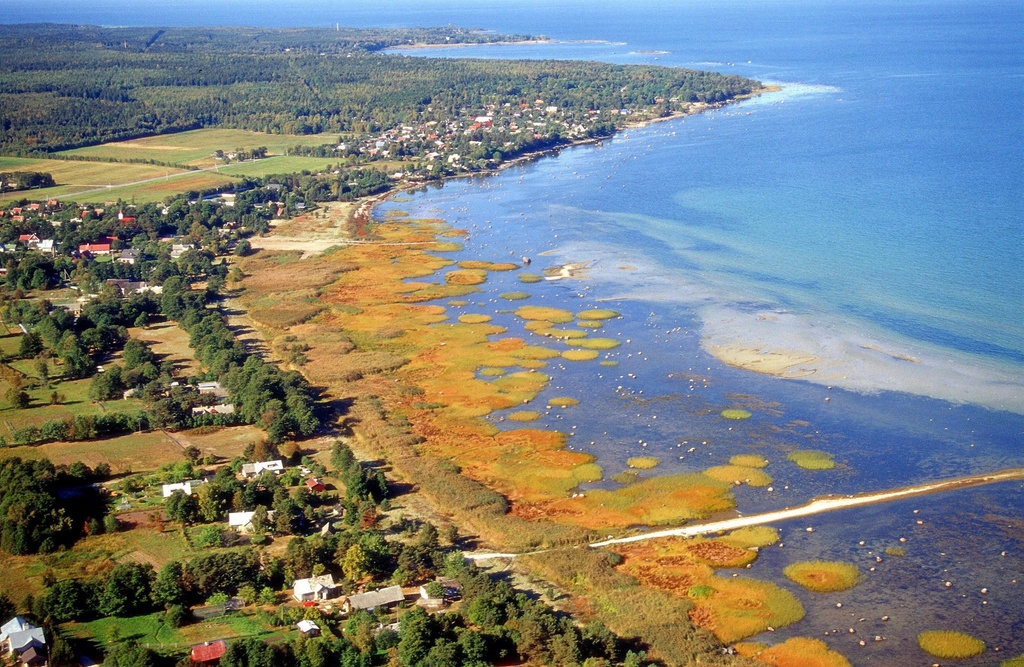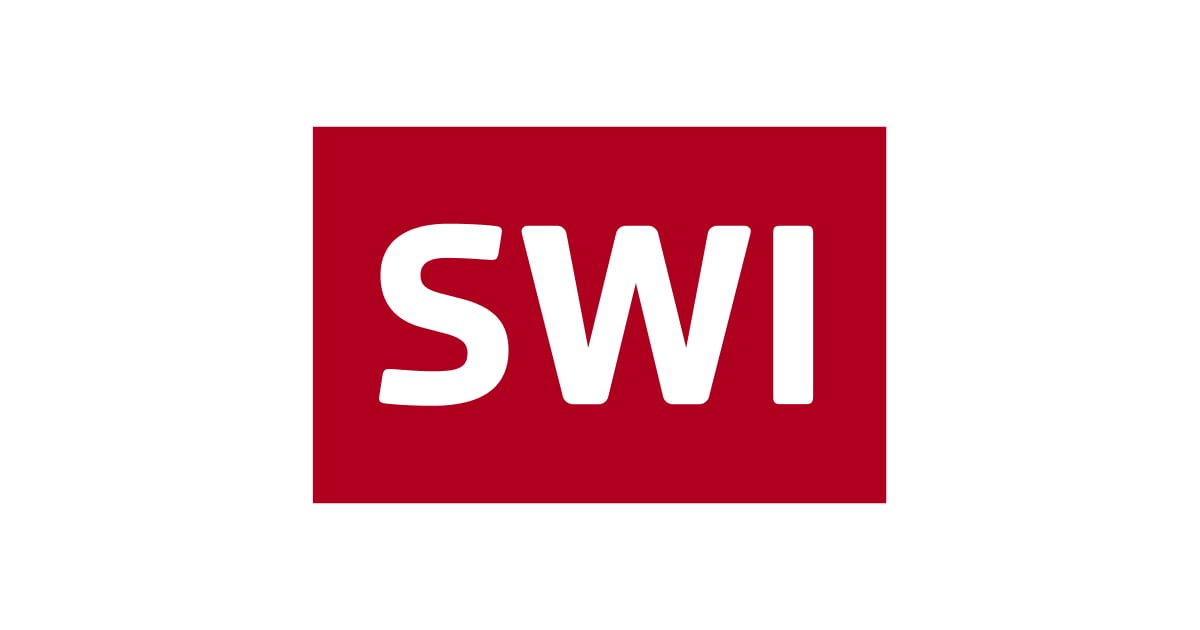Rightwing raises stakes over future EU relations

The rightwing Swiss People’s Party is calling on the government to rule out the option of Swiss membership of the European Union and the adoption of EU law.
In an interview with swissinfo.ch Hans Fehr, senior party member and parliamentarian, accuses the government of being ambiguous about future ties between Bern and Brussels.
Switzerland has concluded more than 120 bilateral accords with the 27-nation bloc, but the EU is now stepping up pressure to find different forms of cooperation.
The cabinet is expected this week to discuss a report on the issue by a joint working group of experts from Switzerland and the EU.
It was set up in July to examine possible ways in which Switzerland could adopt EU law and to discuss the introduction of a tribunal to resolve contentious issues.
swissinfo.ch: How should Switzerland react to increasing pressure from the EU?
Hans Fehr: We must be unequivocal with Brussels and tell them clearly what we want. Switzerland is an independent country with complete freedom of action. This is the aim of our foreign policy according to article two of the federal constitution.
swissinfo.ch: Do you mean to say that Switzerland will not agree to discuss the demands of Brussels?
H.F.: What we need is a clear position and no ambiguous language and double speak.
Brussels believes the Swiss government wants to take the country into the EU. But it is well known that the Swiss people do not want to join it. Who would want to be drawn into the disaster of a poorly constructed union with a doomed common currency?
It’s time for the government to respect the opinion of its citizens and finally withdraw its application for membership [launched in 1992 and put on ice since].
swissinfo.ch: In the past few months and years the government has never said it was seeking EU membership.
H.F.: Officially the government reaffirms that bilateral treaties are the best way to work with the EU. But at the same time the political establishment in Bern complains that the bilateral policy has reached its limits and it wants to make concessions to Brussels.
The EU for its part is turning up the heat because it needs more funds.
This is why it is time to make clear that Swiss voters have opted for bilateral accords and do not want EU membership.
swissinfo.ch: Negotiations between Bern and Brussels over an electricity accord have reached deadlock after four years. Why are you convinced that the policy of bilateral treaties can still work?
H.F.: It is a matter of political intentions. A deal on electricity is a priority for the EU, not for us.
swissinfo.ch: The Swiss electricity industry wants a deal…
H.F.: There are also different opinions in Switzerland about a treaty on the electricity market. What the EU really wants is an accord with the chemicals industry and the financial industry. Brussels is trying to weaken Swiss banks and undermine cantonal tax autonomy.
We have to say once and for all: So far and no further!
But it is too easy for Brussels if the Swiss government indicates that it wants to join the EU at some point in the not too distant future.
swissinfo.ch: Are you accusing the Swiss negotiators in Brussels of handling the dossier badly?
H.F.: The Swiss government, not the negotiators are the real problem. It sends out ambiguous signals and has failed to formulate clear mandates for the negotiations. When in Brussels ministers talk of membership, but they make the Swiss people believe that they have decided to continue the policy of bilateral treaties.
swissinfo.ch: Brussels wants Switzerland to adapt its bilateral treaties automatically to new EU law. How could Switzerland block such demands?
H.F.: First of all, the EU benefits more than Switzerland from the bilateral accords.
Of course Switzerland can oppose the demands from Brussels. We are not an EU colony.
Take the example of the Schengen regulations in Europe [the agreement abolishing border controls between members]. We have been forced to adopt new laws – about 120 modifications just a few years – without being able to consult Swiss voters.
At the same time the costs for the Schengen treaty are soaring and the single border policy area is threatened by growing insecurity.
The joint working group in Brussels is discussing ‘institutional solutions’. They want us to take over new laws automatically and be subject to foreign judges.
But this is unacceptable for a sovereign state.
swissinfo.ch: Your party warns of a possible negative impact of a labour accord with the EU. Why do you keep quiet about the fact that Switzerland’s export industry or the health sector needs highly skilled foreigners who are also taxpayers and consumers?
H.F.: It was possible to get the foreign labour we needed with the old quota system and without suffering the problems of the free movement of people accord.
Managers and some business sectors may benefit in the short term from the free movement of people, namely a larger workforce to choose from who can be paid lower salaries.
But practically unlimited immigration has led to a dangerous increase in the number of foreigners every year. It jeopardises the social security system, has resulted in problems in schools, a higher crime rate and poorly integrated foreigners.
We have to act now to counter overpopulation. Immigration has to be curbed and we need a better accord. Otherwise we are likely to go from bad to worse from the middle of next year if the free movement of people regulations are extended to eastern Europe.
swissinfo.ch: Switzerland has toed the line of the EU when it came to tougher regulations on exhaust fumes or the norms for fridges. The policy is officially called ‘autonomous re-enactment’, but where does it leave Swiss sovereignty?
H.F.: The People’s Party has no problems if Switzerland takes over technical EU norms. We categorically oppose any attempt to bypass the people and direct democracy.
Switzerland will end up as a colony if it cannot maintain its independence and sovereignty.
swissinfo.ch: Switzerland’s export industry stands to lose its competitive edge if the country pursues an isolationist policy. How can this be avoided?
H.F.: We don’t want Switzerland to be isolated. But everybody wants to come to this paradise.
We are an important trading partner for the EU. We are building a new transalpine rail link for about SFr30 billion ($31 billion) and they are paying nothing. There are 230,000 cross-border workers from the EU and 1.2 million other EU citizens in Switzerland.
Imports of goods from the EU exceed Swiss exports by about SFr20 billion. I don’t think Brussels will want to spoil things with such a trading partner.
The People’s Party wants Switzerland to be on good terms with EU but not at any cost. In any case, the growth markets are primarily in Asia and South America.
Switzerland and the EU have concluded about 120 bilateral agreements since 1972 when voters approved an Efta accord with Brussels on a free trade zone.
The Swiss government applied for negotiations on EU membership in 1992. The application remains on ice.
The government’s 2006 report on European integration stated that the Swiss policy is based on bilateral treaties.
Last August the government reiterated that bilateral accords are the best way to work with the EU, but it said amendments were needed to continue cooperation with Brussels amid increasing difficulties.
The People’s Party is one of Switzerland’s four main political parties. It has one seat in the seven-strong cabinet.
1992: Swiss voters reject the European Economic Area Treaty – considered a halfway house to EU membership.
1997: Voters throw out proposal by rightwing groups to make EU membership negotiations subject to a nationwide vote.
2000: First set of bilateral treaties (trade, labour, transport) approved in nationwide vote.
2001: Proposal to launch immediate EU membership negotiations rejected in nationwide vote.
2005: Second set of bilateral treaties (customs, asylum, savings tax) win approval in nationwide vote. Extension of labour accord to ten new EU members also approved.
2006: Voters endorse Swiss payments for eastward expansion of EU.
2009: Electorate approves extension of labour accord to Romania and Bulgaria.
(Adapted from German by Urs Geiser)

In compliance with the JTI standards
More: SWI swissinfo.ch certified by the Journalism Trust Initiative















You can find an overview of ongoing debates with our journalists here . Please join us!
If you want to start a conversation about a topic raised in this article or want to report factual errors, email us at english@swissinfo.ch.